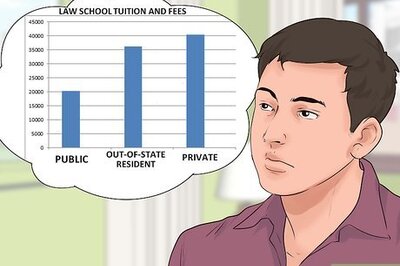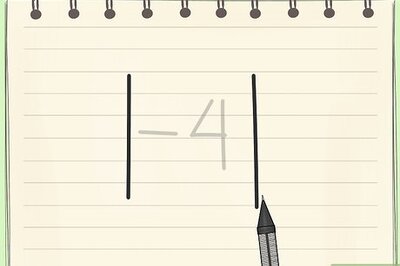
views
The WHO, in 2015, estimated that 1 in 5 Indians dealt with depression in their lifetime. That is a staggering 200 million people just in India! In 2016, suicide was the leading cause of death in India among young people aged 15-39 years and in 2018, the WHO stated that someone died by suicide every 40 seconds. A study conducted in 2019 found that 42.5% of Indian corporate employees either had anxiety or depression.
Ms Ritika Aggarwal, Consultant Psychologist, Jaslok Hospital & Research Centre says depression affects our ability to cope with day to day functioning, our ability to be productive, our self-care, and our long term wellbeing. If we do not recognise and seek help for depression, it can lead to serious mental health concerns which can affect our relationships, deteriorate our performance across the board, increase our risk of substance abuse and suicide, as well as open us up to a host of physical disorders such as hypertension, diabetes, and a lowered immunity system.
Once we recognise and accept depression, then we can move towards asking for help, getting treatment, and starting on the road to recovery. As awareness regarding depression increases and more people learn to accept it as a disorder rather than a weakness, we would hopefully change the narrative around depression.
Creating acceptance of a mental health disorder would work on reducing the stigma related to it. At present, depression is often times misunderstood as the individual not making enough of an effort to stay happy/ be positive which adds to the self guilt experienced by the patient who may view their depression as a sign of failure thus forming a vicious cycle.
Among teenagers, depressive symptoms are often mislabeled as “normal teenage angst” and among the elderly, it is often considered to be a “normal part of aging”. The acceptance of depression as a disorder would allow us to identify the signs among these at risk, vulnerable groups earlier, thus starting with intervention early, and improving the long term prognosis.
In addition, a huge burden would be lifted off the shoulders of those dealing with mental health concerns if society was to view them the same way we view someone with a broken bone. I’ve had clients who were so worried about how people would behave around them that they carried the additional burden of trying to hide their depression and avoid social gatherings even when doing better. Can you imagine how tiring and draining it can be to constantly wear a mask & play a character that is not in sync with how you’re feeling?!
Many people find it difficult to get a job again post battling depression as interviews can be daunting and they’re worried interviewers may be against them once they learn their reason for either a break from work or quitting/ getting fired from their previous jobs. Accepting depression would also reduce the stigma at work and increase job opportunities. The work environment would be more positive and colleagues would be as empathetic as they would for a person with a physical disorder.
The WHO has estimated the economic loss due to mental health conditions in India between the years 2012-2030 at 1.03 trillion dollars! Wouldn’t it be more cost effective for us to recognise and accept mental health conditions, get treatment early, and optimise our workforce to create surplus funds?!
In the long run, acceptance of mental health disorders will create a world where everyone is able to access mental health services and we will also see a greater investment into maintaining and improving those mental health services.
Read all the Latest News and Breaking News here
















Comments
0 comment